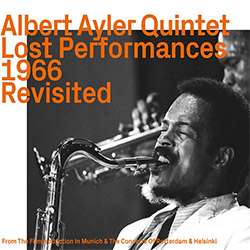
In 1966 tenor saxophonist Albert Ayler toured northern Europe with his ensemble of Donald Ayler on trumpet, Michel Samson on violin, William Folwell on double bass & Beaver Harris on drums, a stellar group performing some of Ayler's most substantial compositions, heard in concerts in Rotterdam and Helsinki, and in the soundtrack to a film recorded in Munich.
In Stock
Quantity in Basket: 1
Log In to use our Wish List
Shipping Weight: 3.00 units
EU & UK Customers:
Discogs.com can handle your VAT payments
So please order through Discogs
Sample The Album:
Albert Ayler-tenor saxophone
Donald Ayler-trumpet
Michel Samson-violin
William Folwell-double bass
Beaver Harris-drums
Click an artist name above to see in-stock items for that artist.
UPC: 752156114628
Label: ezz-thetics by Hat Hut Records Ltd
Catalog ID: ezz-thetics 1146
Squidco Product Code: 32827
Format: CD
Condition: New
Released: 2023
Country: Switzerland
Packaging: Cardboard Gatefold
Tracks 1-3 recorded in Munchen, Germany, on November 4th or 5th, 1966.
Tracks 4-7 recorded at De Doelen, in Rotterfam, The Netherlands, on November 8th, 1966.
Tracks 8-12 recorded at Kulttuuritalo (House Of Culture), in Helsinki, Finland, on November 9th, 1966.
"Albert Ayler's late 1966 tour of northern Europe was, happily, well documented in one way or another, though not always with the best sound quality, something this reissue series is attempting to address (and doing very well). The recording at hand includes a track from a session in Munich, concerts from Rotterdam and Helsinki.
The ensemble for the tour, in addition to Ayler, was brother Donald on trumpet, the intriguing violinist Michael Samson (who had sat in with Ayler earlier in the year in Cleveland and remained with the group), bassist Bill Folwell and Beaver Harris on drums. The first track is from a Münich studio date recorded just after the concert in Berlin and it's a fascinating one. A medley of 'Ghosts/ Our Prayer/Infinite Spirit' is given a reading more streamlined, less unbridled than was typically heard in live performance, with a wonderfully elegiac section in the middle, Samson's violin providing a heartfelt and almost sweet obbligato to the tenor and trumpet. Even the concluding march section has a kind of control that was rarely heard in live sets, not better or worse but evincing a range of approaches that might surprise some listeners.
Ayler's joyful woolliness is back in full force on the Rotterdam date from November 8th. The repertoire for the tour was fairly restricted, the same nine or ten pieces rotated from performance to performance. One striking aspect right from the beginning of 'Truth Is Marching In' is the organic incorporation of Samson's violin into the theme as expressed by the horns; there's an almost elastic feeling imparted, very corporeal. 'Prophet' is even freer, Samson again setting the tone with a wild, spiraling improvisation leading to a pleasingly rugged solo from Harris. The quintet plays with the structure of 'Bells' as well, gently circling the theme and treating it as a kind of playful dance once it arrives. '"Changes Has Come' is an outlier here, very much living up to its title. Although typical Aylerian thematic material can be heard, it's a freer approach than the group usually employed, Donald Ayler unleashing a ferocious solo untethered to any melody, Harris erupting and Samson skittering madly. Ayler eventually broaches a theme, carrying the piece to an exuberant end.
An evening later, the quintet was in Helsinki. Once again they begin with 'Truth Is Marching In', this time a rousing, rambunctious version, tenor saxophone and violin intertwining beautifully and naturally on the theme and subsequent improvised variations. When the group unites for a statement of the melody, there's a joyfully strutting quality that's quite wonderful before things splinter and the trumpet comes to the fore for a blistering attack. The music swivels back and forth: theme, free improv, theme, brief solo, etc. never remaining in place too long, always shifting-a marvelous performance. The remaining pieces differ from the previous night. 'Divine Peace Maker' gets an interesting reading, ranging from the march-like opening line to what sounds like a dark variation on 'Let My People Go' to a mournful, almost cantorial melody led by Donald Ayler before jauntily returning to the theme. The remaining three works are kept fairly short, the melody from 'Infinite Spirit' approached lightly, even prettily, caressed by an especially warm tenor by Ayler. 'Prophet' bursts open with frantic and imaginative violin work segueing into fine drum feature for Harris and ends in a raging maelstrom. Finally, the doleful 'Our Prayer' closes out the evening, its deep, sorrowful-but-hopeful melody lovingly played by Donald Ayler with "congregational" support from tenor, violin and bass, Albert making the occasional guttural aside-very moving and perfectly realized. The relative concision of pieces like this was something of a new notion compared with often far lengthier takes on the same compositions from prior dates, even earlier the same year as heard at the Slugs' Saloon session from May.
Ayler would return to the United States in late 1966. The recorded evidence from the next few months, documented on the various recordings from Greenwich Village, indicates his continued searching down the path heard herein, sometimes augmenting the ensemble with cellist Joel Freedman and using an extra bassist, either Alan Silva or Henry Grimes, along with Folwell. After several months of recorded inactivity, broken only by an appearance at the Newport Jazz Festival in late June of 1967 and a performance at the funeral of John Coltrane on July 21st, both of which indicate further travels along this same road, an abrupt change of direction was to be heard on the late August recording of 'Love Cry' and subsequent records, where a decided incorporation of rock and soul ideas is found, along with the occasionally jarring harpsichord of Call Cobbs. Always exploring, his premature death in November, 1970 left listeners with no clear notion of what might have come next save, perhaps, the surety that it would have been heartfelt and spiritual."-Brian Olewnick, November 2022

The Squid's Ear!
Artist Biographies
• Show Bio for Albert Ayler "Albert Ayler (born July 13, 1936 - November 25, 1970) was an American avant-garde jazz saxophonist, singer and composer. After early experience playing R&B and bebop, Ayler began recording music during the free jazz era of the 1960s. However, some critics argue that while Ayler's style is undeniably original and unorthodox, it does not adhere to the generally accepted critical understanding of free jazz. In fact, Ayler's style is difficult to categorize in any way, and it evoked incredibly strong and disparate reactions from critics and fans alike. His innovations have inspired subsequent jazz musicians. His trio and quartet records of 1964, such as Spiritual Unity and The Hilversum Session, show him advancing the improvisational notions of John Coltrane and Ornette Coleman into abstract realms where whole timbre, and not just mainly harmony with melody, is the music's backbone. His ecstatic music of 1965 and 1966, such as "Spirits Rejoice" and "Truth Is Marching In", has been compared by critics to the sound of a brass band, and involved simple, march-like themes which alternated with wild group improvisations and were regarded as retrieving jazz's pre-Louis Armstrong roots. Early life and career Born in Cleveland, Ohio, Ayler was first taught alto saxophone by his father Edward, who was a semiprofessional saxophonist and violinist. Edward and Albert played alto saxophone duets in church and often listened to jazz records together, including swing era jazz and then-new bop albums. Ayler's upbringing in the church had a great impact on his life and music, and much of his music can be understood as an attempt to express his spirituality, including the aptly titled Spiritual Unity, and his album of spirituals, Goin' Home, which features "meandering" solos that are meant to be treated as meditations on sacred texts, and at some points as "speaking in tongues" with his saxophone. Ayler's experience in the church and exposure to swing jazz artists also impacted his sound: his wide vibrato was similar to that of gospel saxophonists, who sought a more vocal-like sound with their instruments, and to that of brass players in New Orleans swing bands. Ayler attended John Adams High School on Cleveland's East Side, and graduated in 1954 at the age of 18. He later studied at the Academy of Music in Cleveland with jazz saxophonist Benny Miller. Ayler also played the oboe in high school. As a teenager, Ayler's understanding of bebop style and mastery of standard repertoire earned him the nickname of "Little Bird", after Charlie "Bird" Parker, in the small Cleveland jazz scene. In 1952, at the age of 16, Ayler began playing bar-walking, honking, R&B-style tenor with blues singer and harmonica player Little Walter, spending two summer vacations with Walter's band. In 1958, after graduating from high school, Ayler joined the United States Army, where he switched from alto to tenor sax and jammed with other enlisted musicians, including tenor saxophonist Stanley Turrentine. Ayler also played in the regiment band, along with future composer Harold Budd. In 1959 he was stationed in France, where he was further exposed to the martial music that would be a core influence on his later work. After his discharge from the army, Ayler tried to find work in Los Angeles and Cleveland, but his increasingly iconoclastic playing, which had moved away from traditional harmony, was not welcomed by traditionalists. Ayler relocated to Sweden in 1962, where his recording career began, leading Swedish and Danish groups on radio sessions, and jamming as an unpaid member of Cecil Taylor's band in the winter of 1962-63. (Long-rumored tapes of Ayler performing with Taylor's group were released by Revenant Records in 2004, as part of a 10-CD set.) The album My Name Is Albert Ayler is a session of standards recorded for a Copenhagen radio station with local musicians including Niels-Henning Ørsted Pedersen and drummer Ronnie Gardiner, with Ayler playing tenor and soprano on tracks such as "Summertime".Early recording career In 1963, Ayler returned to the US and settled in New York City, where he continued to develop his personal style and occasionally played alongside free jazz pianist Cecil Taylor. 1964 was the most well-documented year of Ayler's career, during which he recorded many albums, the first of which was Witches and Devils in March of that year. Ayler also began his rich relationship with ESP-Disk Records in 1964, recording his breakthrough album (and ESP's very first jazz album) Spiritual Unity for the then-fledgling record label. ESP-Disk came to play an integral role in recording and disseminating free jazz. Spiritual Unity featured the trio that Ayler had just assembled that summer, including bassist Gary Peacock and drummer Sunny Murray. The liner notes of Spiritual Unity include a brief description of the musicians on that day, July 10, 1964, in the Variety Arts Recording Studio. Just before 1 PM, Sunny Murray arrived, a large, genial walrus....Gary Peacock was next, tall, thin, ascetic looking, and soft spoken....Albert Ayler was last, small, wary, and laconic. On July 17, 1964 the members of this trio, along with trumpet player Don Cherry, alto saxophonist John Tchicai, and trombonist Roswell Rudd, collaborated in recording New York Eye and Ear Control, a freely improvised soundtrack to Canadian artist and filmmaker Michael Snow's film of the same name. During this time, Ayler began to garner some attention from critics, although he was not able to foster much of a fan following. However, later in 1964, Ayler, Peacock, Murray, and Cherry were invited to travel to Europe for a brief Scandinavian tour, which too yielded some new recordings, including The Copenhagen Tapes, Vibrations, and The Hilversum Session. Ayler recorded Bells on May 1, 1965. It is a ferociously-paced 20-minute improvisation featuring his signature military-march influenced melodies. Spirits Rejoice was recorded on September 23, 1965 at Judson Hall in New York City, and features a much larger band than the sparse trio of his earlier album Spiritual Unity. The Encyclopedia of Popular Music describes Spirits Rejoice as a "riotous, hugely emotional and astonishingly creative celebration of the urge to make noise." Both albums feature Albert's brother, trumpet player Donald Ayler, who translated his brother's expansive approach to improvisation to the trumpet. Donald played with Albert until he experienced a debilitating nervous breakdown in 1967. In 1966 Ayler was signed to Impulse Records at the urging of Coltrane, the label's star attraction at that time. But even on Impulse, Ayler's radically different music never found a sizable audience. Ayler's first set for Impulse was recorded a few weeks before Christmas in 1966, entitled Albert Ayler in Greenwich Village. Ayler performed with his brother, Michel Samson, Beaver Harris, Henry Grimes, and Bill Folwell, and his Coltrane was in attendance. For a tune titled "For John Coltrane," Ayler returned to the alto saxophone for the first time in years. Ayler first sang on a recording in a version of "Ghosts" performed in Paris in 1966, in which his vocal style was similar that of his saxophone, with an eerie disregard for pitch. Ayler continued to experiment with vocals for the rest of his career. In 1967, John Coltrane died of liver cancer, and Ayler was asked to perform at his iconic funeral. It is said that during his performance, Ayler ripped his saxophone from his mouth at two points: once, to emit a cry of anguish, the other a cry of joy to symbolize his friend and mentor's ascension into heaven.Final years For the next two and half years Ayler began to move from a mostly improvisatory style to one that focused more closely on compositions. This was largely a result of pressures from Impulse who, unlike ESP-Disk, placed heavier emphasis on accessibility than artistic expression. In 1967 and 1968, Ayler recorded three LPs that featured the lyrics and vocals of his girlfriend Mary Maria Parks and introduced regular chord changes, funky beats, and electronic instruments. Ayler himself sang on his album New Grass, which hearkened back to his roots in R&B as a teenager. However, this album was remarkably unsuccessful, scorned by Ayler fans and critics alike. Ayler staunchly asserted that he wanted to move in this R&B and rock-and-roll direction, and that he was not simply succumbing to the pressures of Impulse and the popular music of that day, and it is true that Ayler heavily emphasizes the spirituality that seems to define the bulk of his work. New Grass begins with the track "Message from Albert," in which Ayler speaks directly to his listener, explaining that this album was nothing like his ones before it, that was of "a different dimension in [his] life." He claims that, "through meditation, dreams, and visions, [he has] been made a Universal Man, through the power of the Creator..." In 1968, Ayler submitted an impassioned, rambling open letter to Cricket magazine entitled "To Mr. Jones-I Had a Vision," in which he describes startling apocalyptic spiritual visions. He "saw in a vision the new Earth built by God coming out of Heaven," and implores the readers to share the message of Revelations, insisting that "This is very important. The time is now." His final album, Music Is the Healing Force of the Universe, featured rock musicians such as Henry Vestine of Canned Heat alongside jazz musicians like pianist Bobby Few. This was a return to his blues-roots with very heavy rock influences, but did feature more of Ayler's signature timbre variations and energetic solos than the unsuccessful New Grass. In July 1970 Ayler returned to the free jazz idiom for a group of shows in France (including at the Fondation Maeght), but the band he was able to assemble (Call Cobbs, bassist Steve Tintweiss and drummer Allen Blairman) was not regarded as being of the caliber of his earlier groups. Ayler disappeared on November 5, 1970, and he was found dead in New York City's East River on November 25, a presumed suicide. For some time afterwards, rumors circulated that Ayler had been murdered, with a long standing urban legend that the Mafia tied him to a jukebox. Later, however, Parks would say that Ayler had been depressed and feeling guilty, blaming himself for his brother's problems. She stated that, just before his death, he had several times threatened to kill himself, smashed one of his saxophones over their television set after she tried to dissuade him, then took the Statue of Liberty ferry and jumped off as it neared Liberty Island. He is buried in Highland Park Cemetery in Beachwood, Ohio." ^ Hide Bio for Albert Ayler • Show Bio for Donald Ayler "Donald Ayler (October 5, 1942 - October 21, 2007) was a jazz trumpeter and younger brother to saxophonist Albert Ayler. Born in Cleveland Heights, Ohio, he went on to work with his brother in the mid-1960s. In 1967 Donald had what he termed a "nervous breakdown", which affected his brother's life as well. In 1970 his brother's death affected him deeply. After that he did work with a septet in Florence, but remains best known for his connection to Albert. Donald appears in the documentary film My Name Is Albert Ayler where he talks about his and Albert's life, their music and their relationship. He is also featured in archival footage from concerts in Europe in 1966. The new sequences with him were filmed in Cleveland, Ohio in 2001 and 2002. Ayler suffered a sudden heart attack on Sunday October 21, 2007, and died at home in Northfield, Ohio." ^ Hide Bio for Donald Ayler • Show Bio for Michel Samson Michel Samson, born in 1944 in Rijswijk, was an American violinist of Dutch origin best known for being a member of the Albert Ayler Quintet. Samson began began studying the violin when he was five years old, receiving a grant from the Dutch Government to study in Germany at the age of 11. After that he studied with Yehudi Menuhin in Rome, where composer Gian-Carlo Menotti arranged a grant for him to study in New York with Ivan Gelamian. He met Albert Ayler in 1966 while performing with the Cleveland Orchestra and joined his band. He also was a professor and violinist in residence at the Farleigh Dickinson University in New Jersey. ^ Hide Bio for Michel Samson • Show Bio for William Folwell William Folwell: Jazz bassist. Born May 1, 1939 in Rochester, NY; died on October 2, 2019. 1968: String bassist, vocalist and trumpet player for Ars Nova. Known for the groups Albert Ayler Quintet, Ars Nova, and The Oddyssey Quartet. ^ Hide Bio for William Folwell • Show Bio for Beaver Harris "William Godvin "Beaver" Harris (April 20, 1936 - New York, New York, December 22, 1991) was an American jazz drummer who worked extensively with Archie Shepp. Harris was born in Pittsburgh, Pennsylvania. Coming from an athletic family, he played baseball as a teenager for the Kansas City Monarchs (then part of the Negro American League) and was scouted by major league teams Brooklyn Dodgers and New York Giants. It was only after he was in the army that he began playing drums. After his national service ended in 1963 he moved to New York City and was encouraged to pursue a musical career by Max Roach. While in New York he worked and/or toured with Marion Brown, Dexter Gordon, Albert Ayler, Joe Henderson, Freddie Hubbard, Clifford Jordan, Howard Johnson, Sheila Jordan, Lee Konitz, Thelonious Monk, Roswell Rudd, Sonny Rollins, McCoy Tyner, Sonny Stitt, Clark Terry, Chet Baker, Doc Cheatham and Larry Coryell among other musicians. In addition, Harris founded a "world music" band and called it "The 360 Degree Music Experience". The band included some of the most significant artists of the time, including Buster Williams, Hamiet Bluiett, Don Pullen, Jimmy Garrison, Ron Carter, Ricky Ford, Titos Sompa and many others. Harris died of prostate cancer in New York at the age of 55. His children, William Godvin Harris III, Verna Harris Vaughn, and Portia Harris." ^ Hide Bio for Beaver Harris
7/1/2025
Have a better biography or biography source? Please Contact Us so that we can update this biography.
7/1/2025
Have a better biography or biography source? Please Contact Us so that we can update this biography.
7/1/2025
Have a better biography or biography source? Please Contact Us so that we can update this biography.
7/1/2025
Have a better biography or biography source? Please Contact Us so that we can update this biography.
7/1/2025
Have a better biography or biography source? Please Contact Us so that we can update this biography.
Track Listing:
1. Ghosts 2:52
2. Our Prayers 4:01
3. Infinite Spirit 3:19
4. Truth Is Marching In 10:24
5. Prophet 5:00
6. Bells / Infinite Spirit 10:29
7. Change Has Come 6:42
8. Truth Is Marching In 10:31
9. Divine Peace Maker 6:05
10. Infinite Spirit 5:20
11. Prophet 5:25
12. Our Prayer 4:43
Hat Art
Improvised Music
Jazz
Free Improvisation
NY Downtown & Metropolitan Jazz/Improv
Quartet Recordings
Jazz Reissues
New in Improvised Music
Staff Picks & Recommended Items
Top Sellers for 2023 by Customer Sales
Jazz & Improvisation Based on Compositions
Search for other titles on the label:
ezz-thetics by Hat Hut Records Ltd.

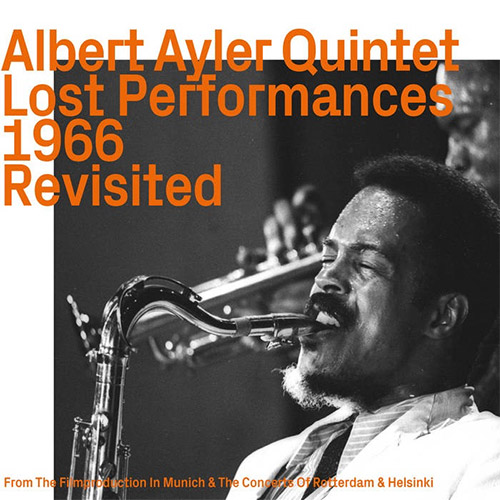
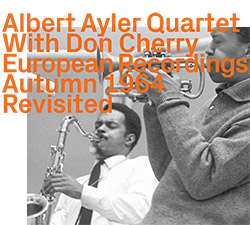
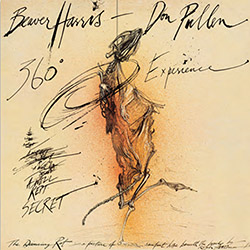

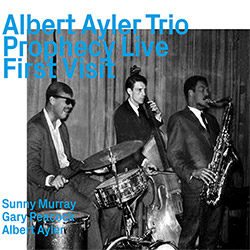

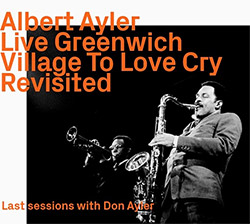
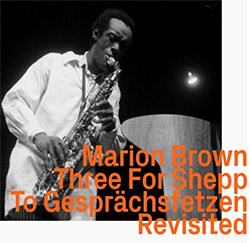

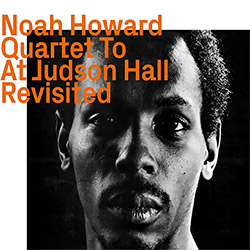
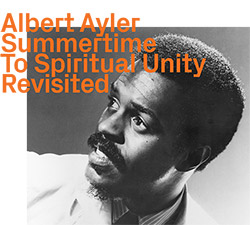
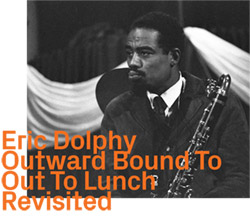

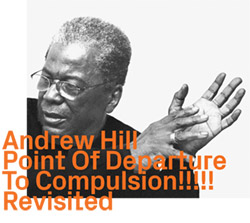
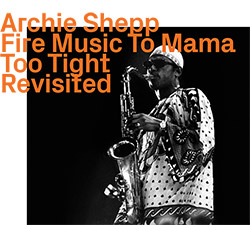






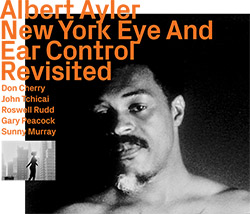


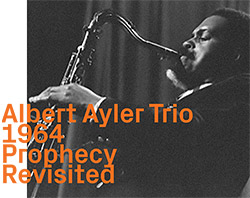












![Deupree, Jerome / Sylvie Courvoisier / Lester St. Louis / Joe Morris: Canyon [2 CDs]](https://www.teuthida.com/productImages/misc4/36404.jpg)


![Eternities: Rides Again [CASSETTE]](https://www.teuthida.com/productImages/misc4/36247.jpg)

![Lopez, Francisco: Untitled (2021-2022) [2 CDs]](https://www.teuthida.com/productImages/misc4/36438.jpg)




![Eventless Plot | Haarvol: The Subliminal Paths [CASSETTE + DOWNLOAD]](https://www.teuthida.com/productImages/misc4/36232.jpg)












![Eventless Plot | Francesco Covarino: Methexis [CASSETTE + DOWNLOAD]](https://www.teuthida.com/productImages/misc4/36231.jpg)



![Das B (Mazen Kerbaj / Mike Majkowski / Magda Mayas / Tony Buck): Love [VINYL]](https://www.teuthida.com/productImages/misc4/36329.jpg)



![Hemphill Stringtet, The: Plays the Music of Julius Hemphill [VINYL]](https://www.teuthida.com/productImages/misc4/36409.jpg)



![Halvorson, Mary Septet: Illusionary Sea [2 LPS]](https://www.teuthida.com/productImages/misc4/17952.jpg)






![Money : Money 2 [2 CDs]](https://www.teuthida.com/productImages/misc4/35894.jpg)




![Klinga, Erik: Elusive Shimmer [VINYL]](https://www.teuthida.com/productImages/misc4/36258.jpg)
![CHANGES TO blind (Phil Zampino): Volume 9 - I Wave on a Fine Vile Mist [CD + DOWNLOAD]](https://www.teuthida.com/productImages/misc4/36061.jpg)

![Wallmart / Rubbish: Asset Protection [split CD]](https://www.teuthida.com/productImages/misc4/35900.jpg)


![+Dog+: The Family Music Book Vol. 5 [2 CDs]](https://www.teuthida.com/productImages/misc4/35897.jpg)
![Kuvveti, Deli : Kuslar Soyledi [CASSETTE w/ DOWNLOAD]](https://www.teuthida.com/productImages/misc4/36107.jpg)

![Nakayama, Tetsuya: Edo Wan [CASSETTE w/ DOWNLOAD]](https://www.teuthida.com/productImages/misc4/36105.jpg)




![Yiyuan, Liang / Li Daiguo: Sonic Talismans [VINYL]](https://www.teuthida.com/productImages/misc4/35957.jpg)
![Brown, Dan / Dan Reynolds: Live At The Grange Hall [unauthorized][CASSETTE]](https://www.teuthida.com/productImages/misc4/36245.jpg)








![Palestine, Charlemagne / Seppe Gebruers: Beyondddddd The Notessssss [VINYL]](https://www.teuthida.com/productImages/misc4/36206.jpg)
![Palestine, Charlemagne / Seppe Gebruers: Beyondddddd The Notessssss [NEON GREEN VINYL]](https://www.teuthida.com/productImages/misc4/36207.jpg)

![Laubrock, Ingrid: Purposing The Air [2 CDs]](https://www.teuthida.com/productImages/misc4/35639.jpg)

![Yoko, Ono / The Great Learning Orchestra: Selected Recordings From Grapefruit [2 CDs]](https://www.teuthida.com/productImages/misc4/35841.jpg)









![Zorn, John / JACK Quartet: The Complete String Quartets [2 CDs]](https://www.teuthida.com/productImages/misc4/35609.jpg)

![Lonsdale, Eden: Dawnings [2 CDs]](https://www.teuthida.com/productImages/misc4/35480.jpg)



![Sorry For Laughing (G. Whitlow / M. Bates / Dave-Id / E. Ka-Spel): Rain Flowers [2 CDS]](https://www.teuthida.com/productImages/misc4/35985.jpg)

![Rolando, Tommaso / Andy Moor : Biscotti [CASSETTE w/ DOWNLOADS]](https://www.teuthida.com/productImages/misc4/36106.jpg)


![Electric Bird Noise / Derek Roddy: 8-10-22 [CD EP]](https://www.teuthida.com/productImages/misc4/35970.jpg)








![Elephant9 : Mythical River [VINYL]](https://www.teuthida.com/productImages/misc4/34624.jpg)



![Elephant9 with Terje Rypdal: Catching Fire [VINYL 2 LPs]](https://www.teuthida.com/productImages/misc4/35355.jpg)
![Deerlady (Obomsawin, Mali / Magdalena Abrego): Greatest Hits [VINYL]](https://www.teuthida.com/productImages/misc4/34876.jpg)







![Surplus 1980: Illusion of Consistency [CD]](https://www.teuthida.com/productImages/misc4/35069.jpg)
![Staiano, Moe: Away Towards the Light [VINYL + DOWNLOAD]](https://www.teuthida.com/productImages/misc4/35037.jpg)
![Coley, Byron: Dating Tips for Touring Bands [VINYL]](https://www.teuthida.com/productImages/misc4/17906.jpg)

![Lost Kisses: My Life is Sad & Funny [DVD]](https://www.teuthida.com/productImages/misc4/lostKissesDVD.jpg)